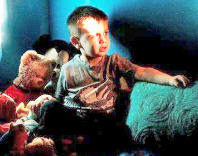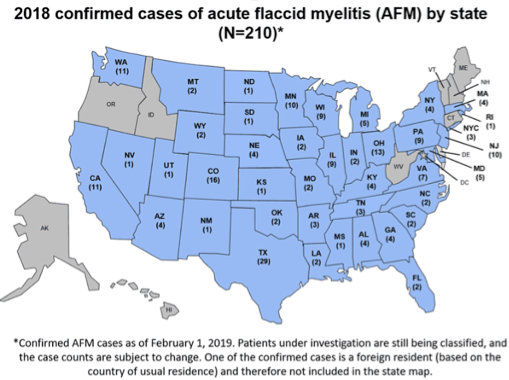
Today’s program comes from Joe Palumbo, E-Club Advisory Board Member.
E-CLUB PROGRAM
PRESIDING TODAY IS: E-Club Advisory Board member, Joe Palumbo
Welcome all – Visitors, fellow Rotarians and guests alike to this E-Club program!
Four-Way Test
At the beginning of each meeting we remind ourselves of the The Four-Way Test. Therefore, please remember to ask yourself always . . .
Of the things we think, say or do:
- Is it the TRUTH?
- Is it FAIR to all concerned?
- Will it build GOODWILL and BETTER FRIENDSHIPS?
- Will it be BENEFICIAL to all concerned?
Reflective Moments
“Do all the good you can. By all the means you can. In all the ways you can. In all the places you can. At all the times you can. To all the people you can. As long as ever you can. ”
– John Wesley, 18th century theologian and evangelist

Light Moments
Program: Acute Flaccid Myelitis –
A Concerning Polio-like Illness
.png)
(Armando L. Sanchez/Chicago Tribune)
In 2018, there were 158 confirmed cases of AFM, where individuals in 36 states across the U.S. are now sick with the illness, leading to difficulty breathing, slurred speech and, in serious cases, paralysis.
The current count of confirmed cases now exceeds that of 2016, when 149 people were confirmed to have the illness.

https://www.raredr.com/news/research-shows-emerging-need-afm-prevention-treatment
For those interested in researching more about Polio, Jeffrey Kluger shares a riveting story about how polio consumed the public mood in the early-to-mid 20th century and about the scientific work to eradicate it in his book “Splendid Solution: Jonas Salk and the Conquest of Polio”.
